Navigating Through The Unfamiliar: Finding Our Place As Leaders With Disabilities
Brian Waihenya is a 2023 Fellowship Alumnus from Kenya. Brian is a writer and disability rights advocate, focusing on creating awareness about issues faced by people who are disabled in Kenya and advocating for inclusion. In this piece, he reflects on his experience in the Mandela Washington Fellowship and his Professional Development Experience at Wilderness Inquiry in Saint Paul, Minnesota.
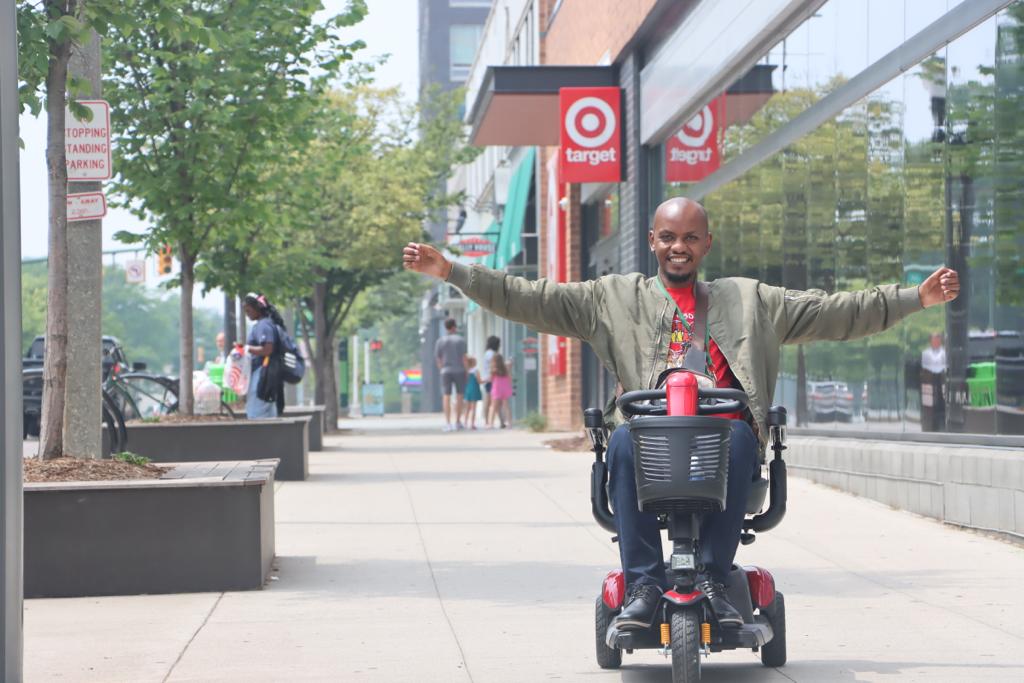
When I was ten years old, a schoolmate told me a harrowing story about a woman who had been possessed by unknown spirits. He described how the woman walked, her legs deformed and her back crooked. She spoke gibberish, and you were never, for any reason, to look her in the eye, lest you, too, would become possessed by the same spirits that had taken over her body. I was terrified that such people lived amongst us. I didn’t know then, but that short and made-up story would inform how I viewed, related to, and socialized with people experiencing disabilities for the next ten years.
It didn’t take long for me to meet the woman my friend had described to me with such horror. It was at a church event, and her parents talked about how she had been born with a severe case of cerebral palsy. She wasn’t possessed or crazy; she simply had a disability. For the first time in my young age, I saw someone who looked different from me. I no longer judged her, and I was running to become her friend.
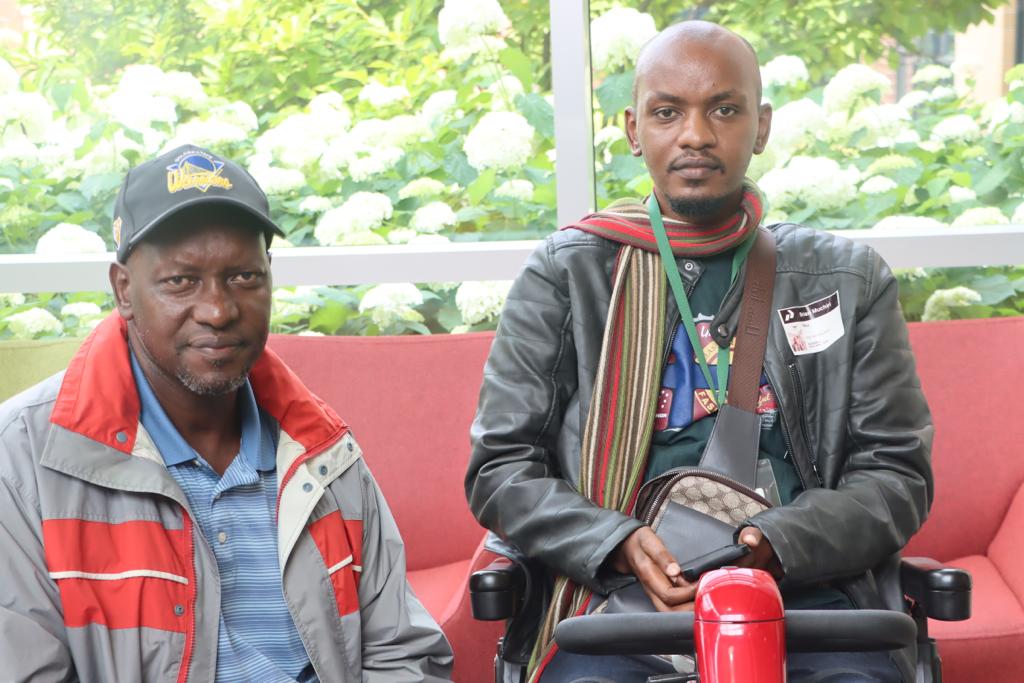
Ten years later, I celebrated my 20th birthday in my bed. My mother fed me cake and sang me “Happy Birthday” in my small, poorly lit room. I remained still, as I had for the past year. All I could do was attempt to clap along and join in the song. It hit me that I, too, was different, like the woman I had been conditioned to fear. I, too, was now disabled: a road accident had left me paralyzed from my chest down. My body was deformed, and I had become a reject of society, or so I thought.
Let’s do a quick exercise right now; place your palm on a flat surface, now fold all your fingers except the ring finger, keep your hand straight on the surface, and then try to lift up your ring finger. That helpless and frustrating feeling is what being paralyzed feels like.
I have always been drawn to writing, and it is my favorite way of expressing myself. Most importantly, I value writing because it has enabled me to pass my message of advocacy clearly and efficiently. I am a proud advocate for the one million disabled people in Kenya. Telling our stories loudly, proudly, and accurately is of most importance to me.
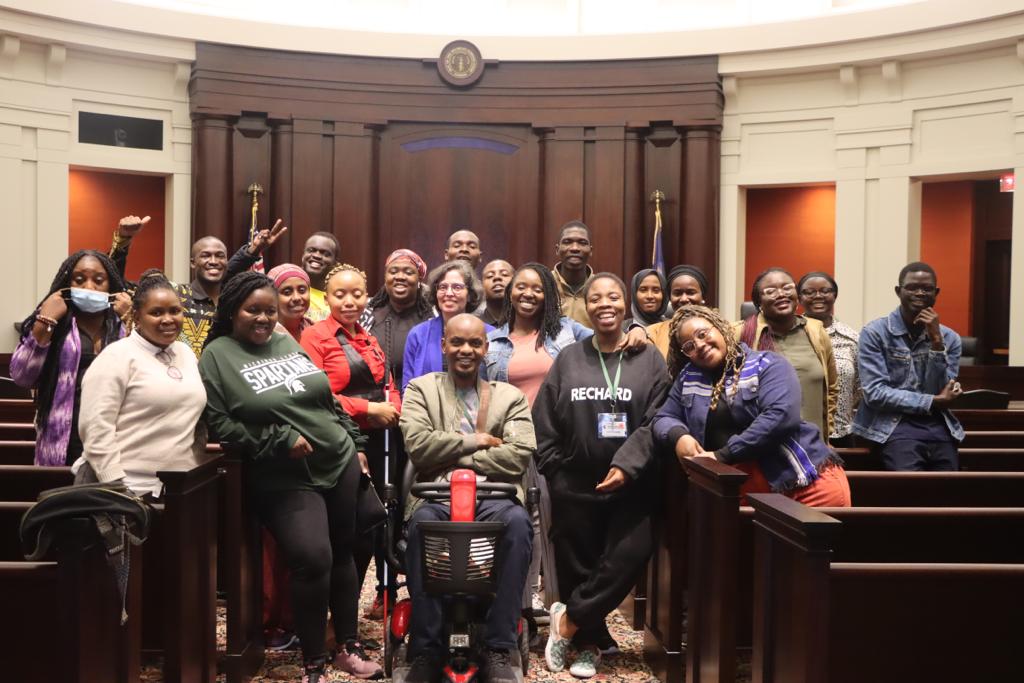
In the summer of 2023, I was thrust into the unfamiliar, more than 10,000 kilometers away from home. I arrived at Michigan State University (MSU) for a Leadership in Civic Engagement Institute. It was MSU’s second cohort ever, and I was among the first disabled fellows to participate in the Fellowship there. I felt a breath of fresh air the moment I started my Leadership Institute. My perspective was different from my peers, as I was the only wheelchair user. I was impressed by how accessible the campus was. It was the first time I had experienced such freedom and independence since the accident. It truly felt like a dream to go anywhere and not need someone walking by my side.
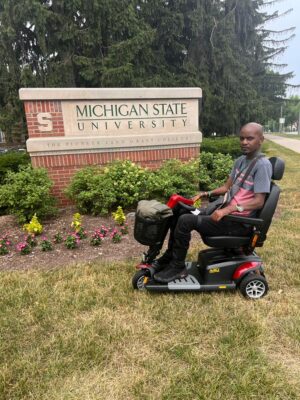
The intense program at the Leadership Institute made me want to take a step back and think about community service differently. For five years, I have been running my non-profit, “Strong Spine,” which empowers the disability community through advocacy and representation. I wanted to include the teachings of Ubuntu into my service and interrogate my understanding of Diversity, Equity, Inclusion, and Accessibility. All these are concepts that were explored at the Leadership Institute in great depth, and they changed how I look at the world and, most importantly, my work.
My time in Michigan taught me that my leadership style could grow – from using my pen as my greatest tool to also utilizing my voice in public speaking. I found myself in unfamiliar waters again, seeking the confidence to voice my ideas. I understand now how important it is for us as leaders with disabilities to not only write our stories well but also to speak life into them.
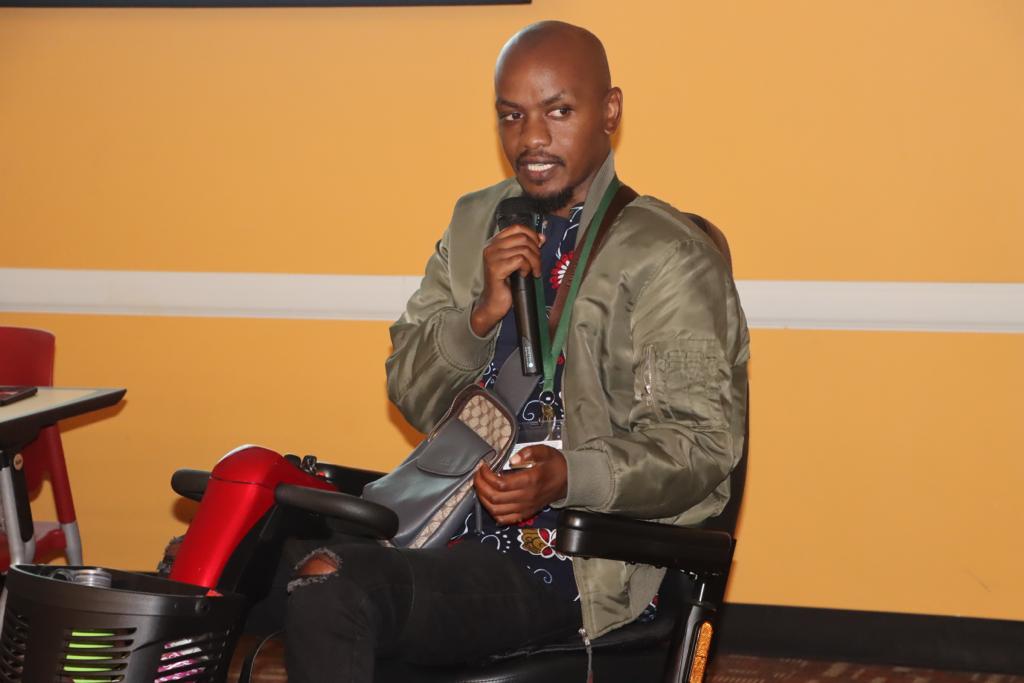
The next stop for me was Minneapolis, Minnesota, where I spent one month working at an American organization for my Professional Development Experience (PDE). I was paired with Wilderness Inquiry, a non-profit organization committed to making the outdoors accessible for everyone. Their message and vision resonated deeply with me. I was more than excited to be a part of the team and get to work.
Wilderness Inquiry was founded in 1978, and I was curious about the tips they could offer me to ensure the longevity and success of my own nonprofit. I spent a lot of time talking with the staff about grant writing, building networks, positive branding, and commitment to the cause. This was all very important to my professional growth and development.
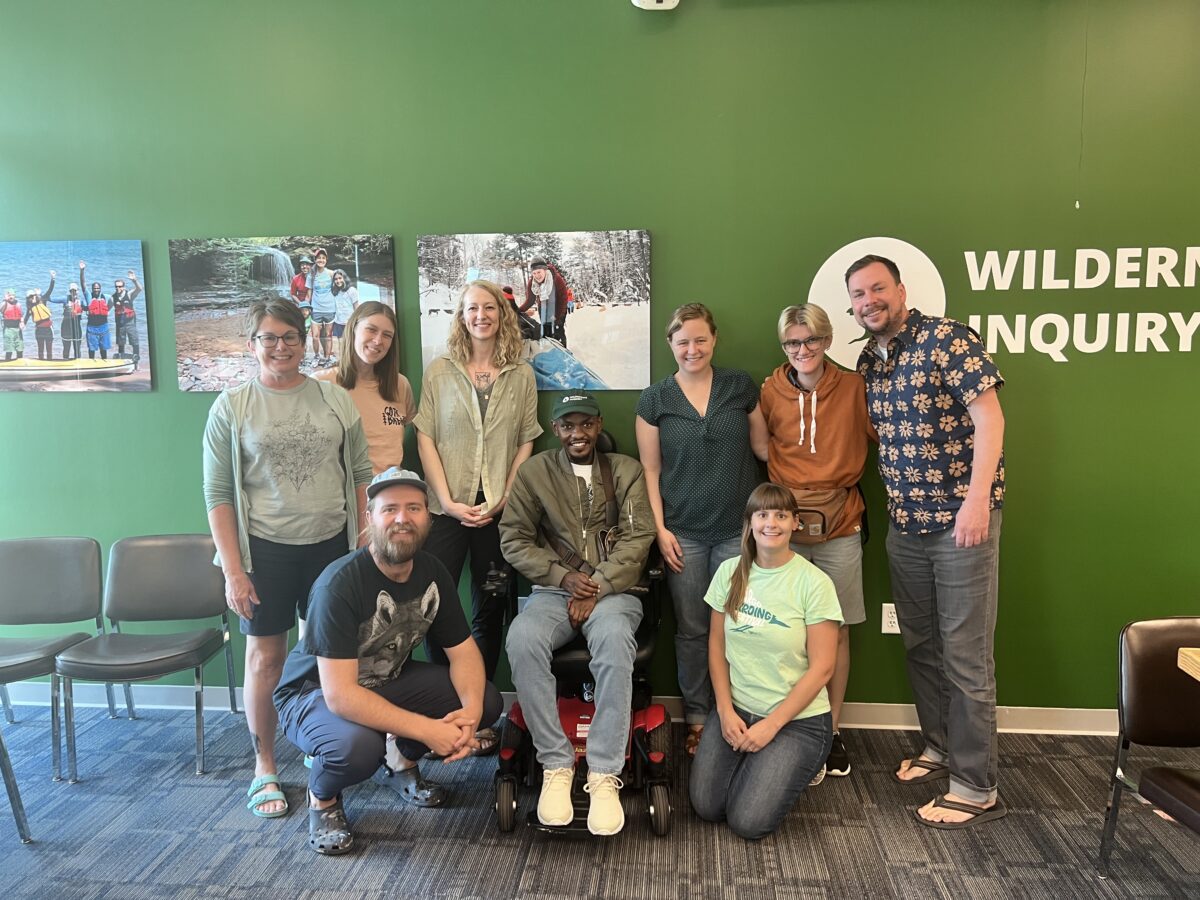
As part of my PDE at Wilderness Inquiry, I was taken on a four-day trip to the Apostles Islands, where I was forced to face my greatest fear: large bodies of water. Since they don’t come any bigger than Lake Superior, we went kayaking there on our first day.
Our guide talked about comfort zones and stretch zones. She encouraged us to surprise ourselves by leaving our comfort zones and daring to stretch ourselves a little wider and longer. To challenge ourselves by doing something new, something different. It felt foreign for me to be in the water, but the team had come up with secure and comfortable ways to position me in the kayak.
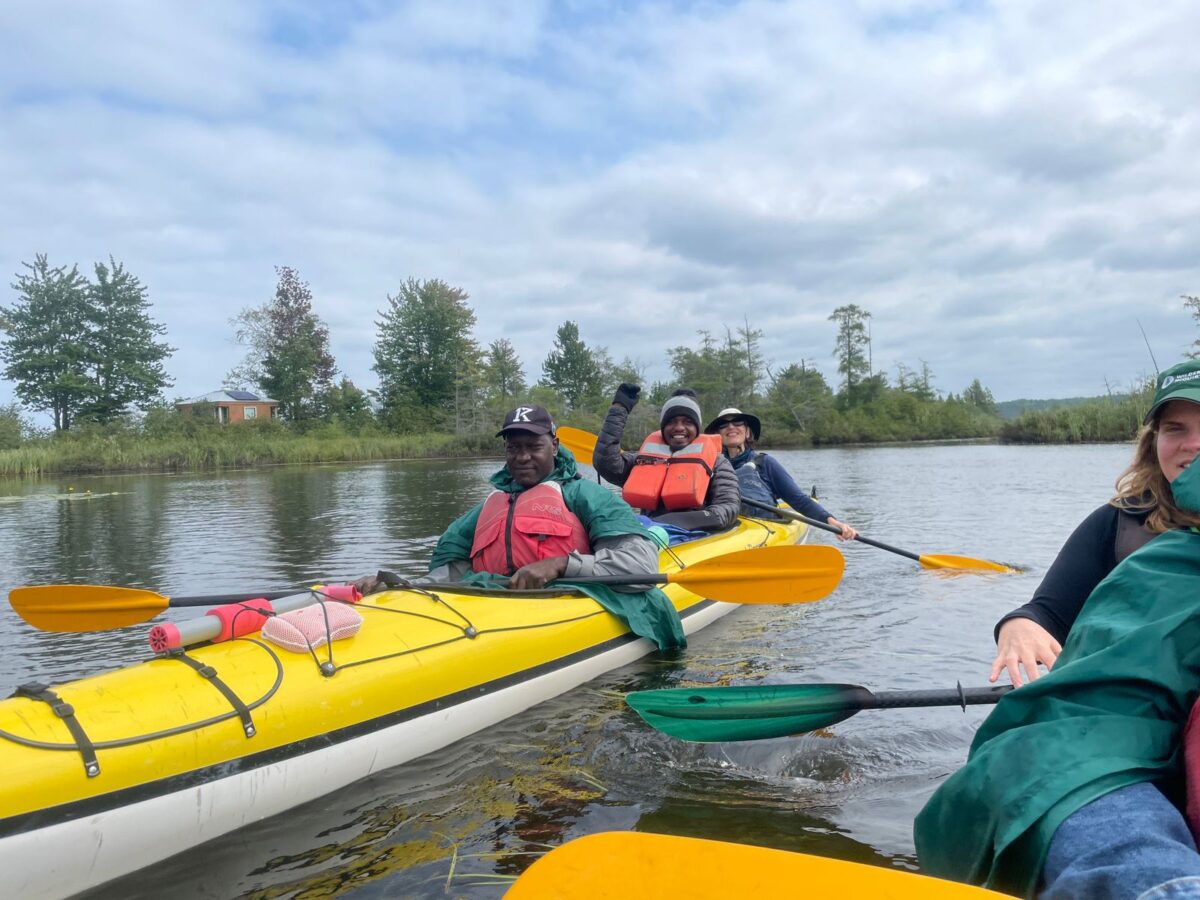
As a disabled person, never in my dreams would I have thought that I would be kayaking in the biggest lake in the world, fighting off waves, paddling to see shipwrecks, and going through the most beautiful sea caves. At the end of that trip, I was exhausted beyond words, but I was also glad that I had found the strength to stretch myself and find growth in the process.
I received word of my selection for the Mandela Washington Fellowship in March 2023. At that point, it had been nine years since the accident. I was a completely different person from the ten-year-old who closed his eyes when he passed a disabled person and the twenty-year-old who was defeated and unsure of his place in the world. I was, and still am, disabled, but I had received enough grace from myself and the people around me to understand that disability is not a curse, a taboo, or something to terrify children with.
I just look different, and who is to say that that is a bad thing?
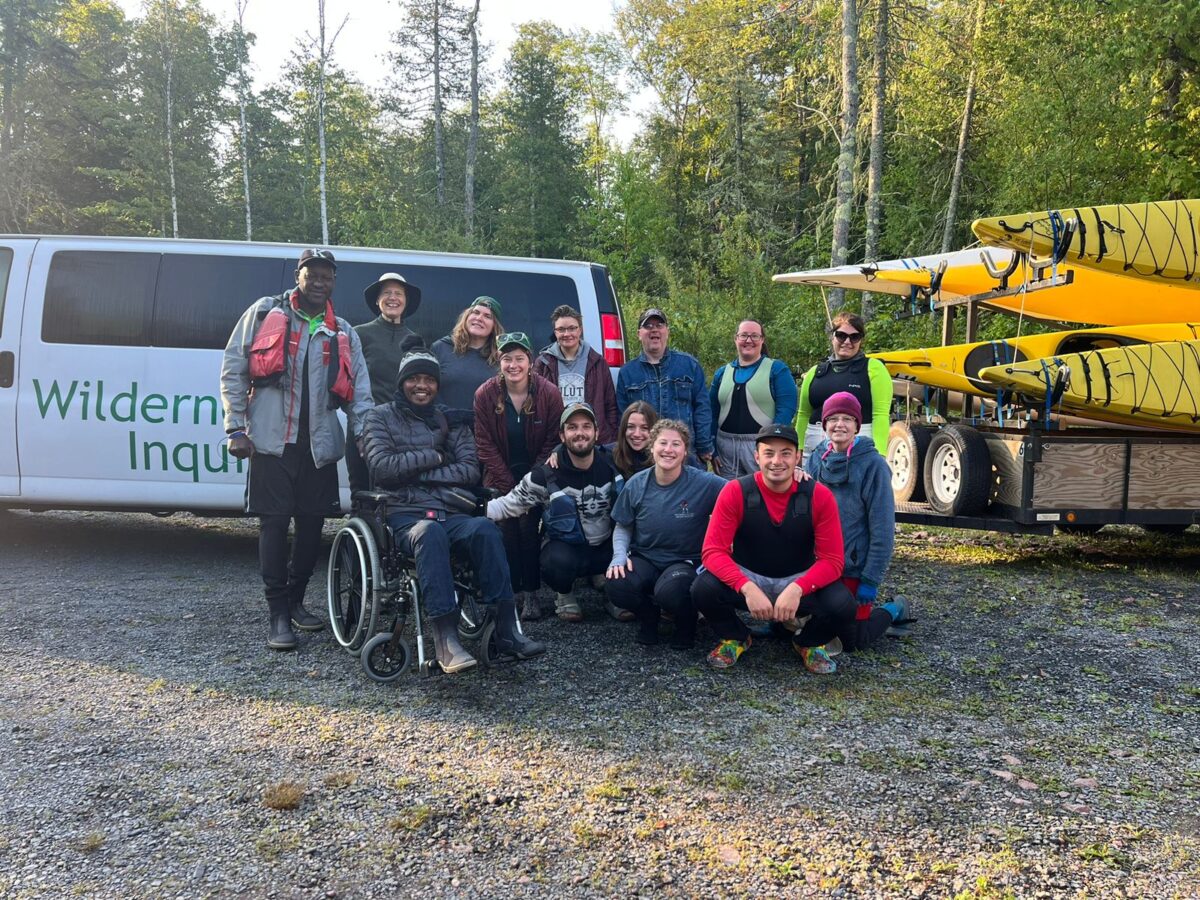
The Mandela Washington Fellowship is a program of the U.S. Department of State with funding provided by the U.S. Government and administered by IREX. The views expressed in this piece are those of the author and do not necessarily represent the views of the U.S. Government.